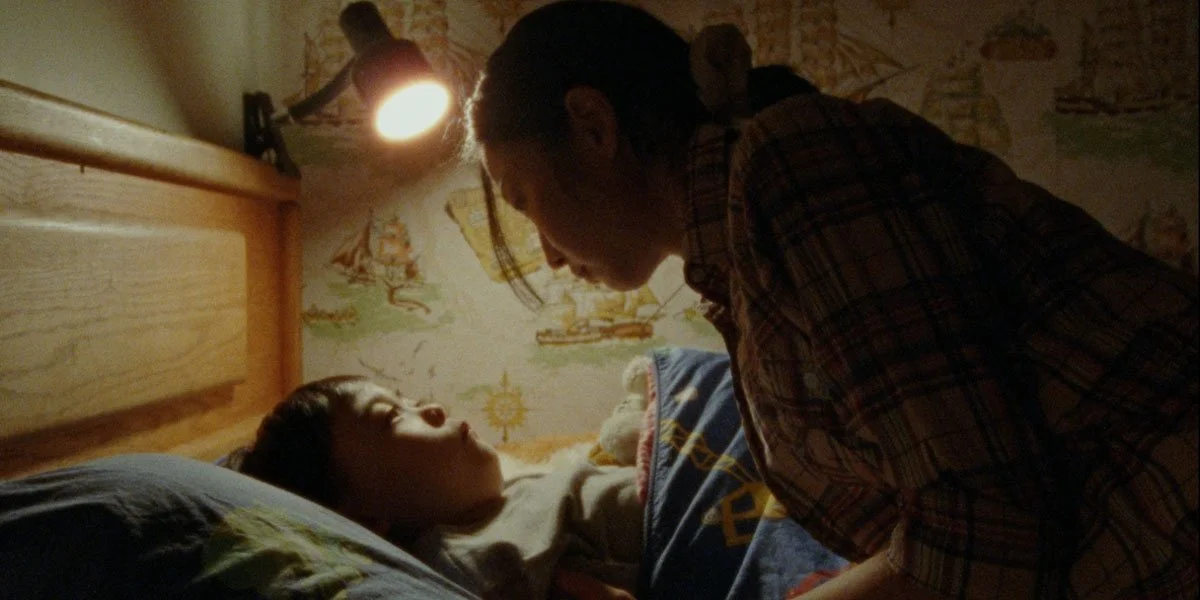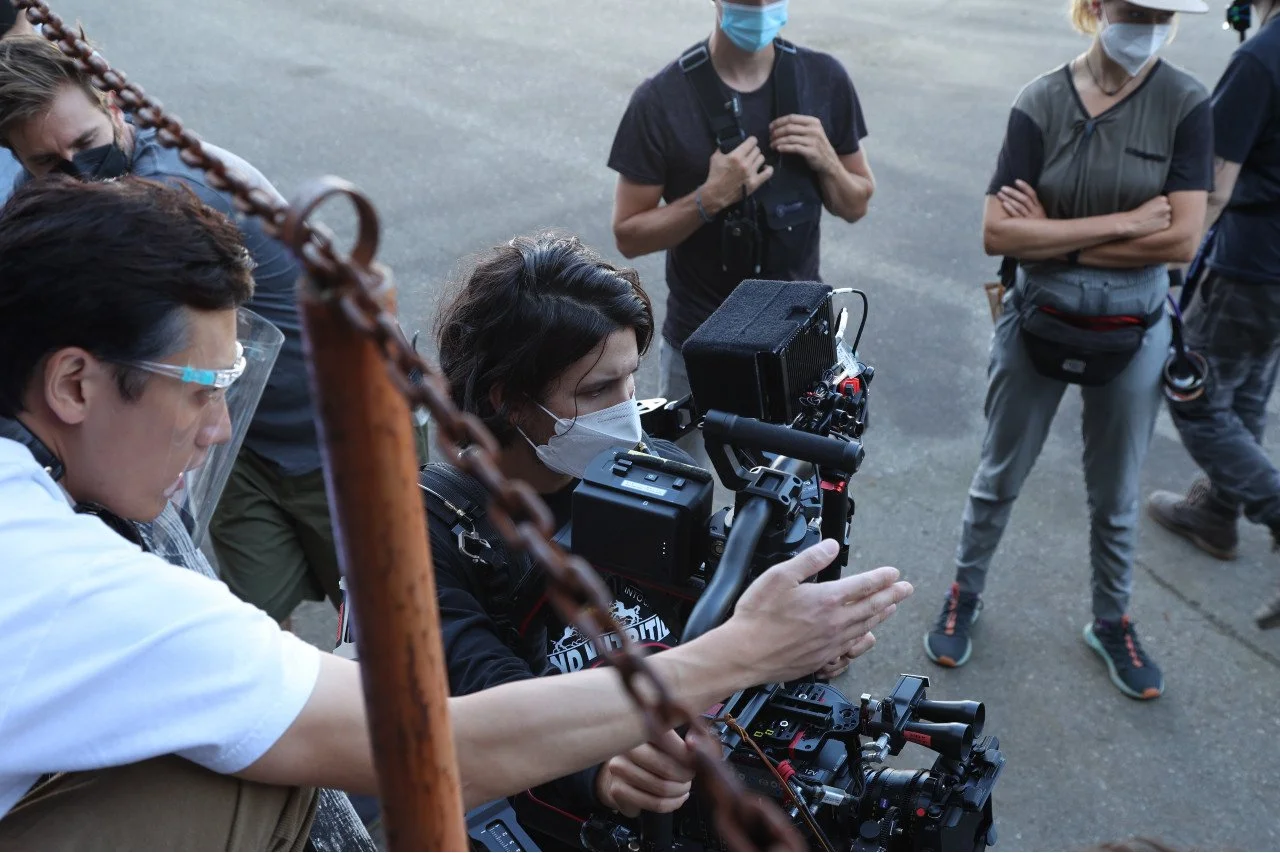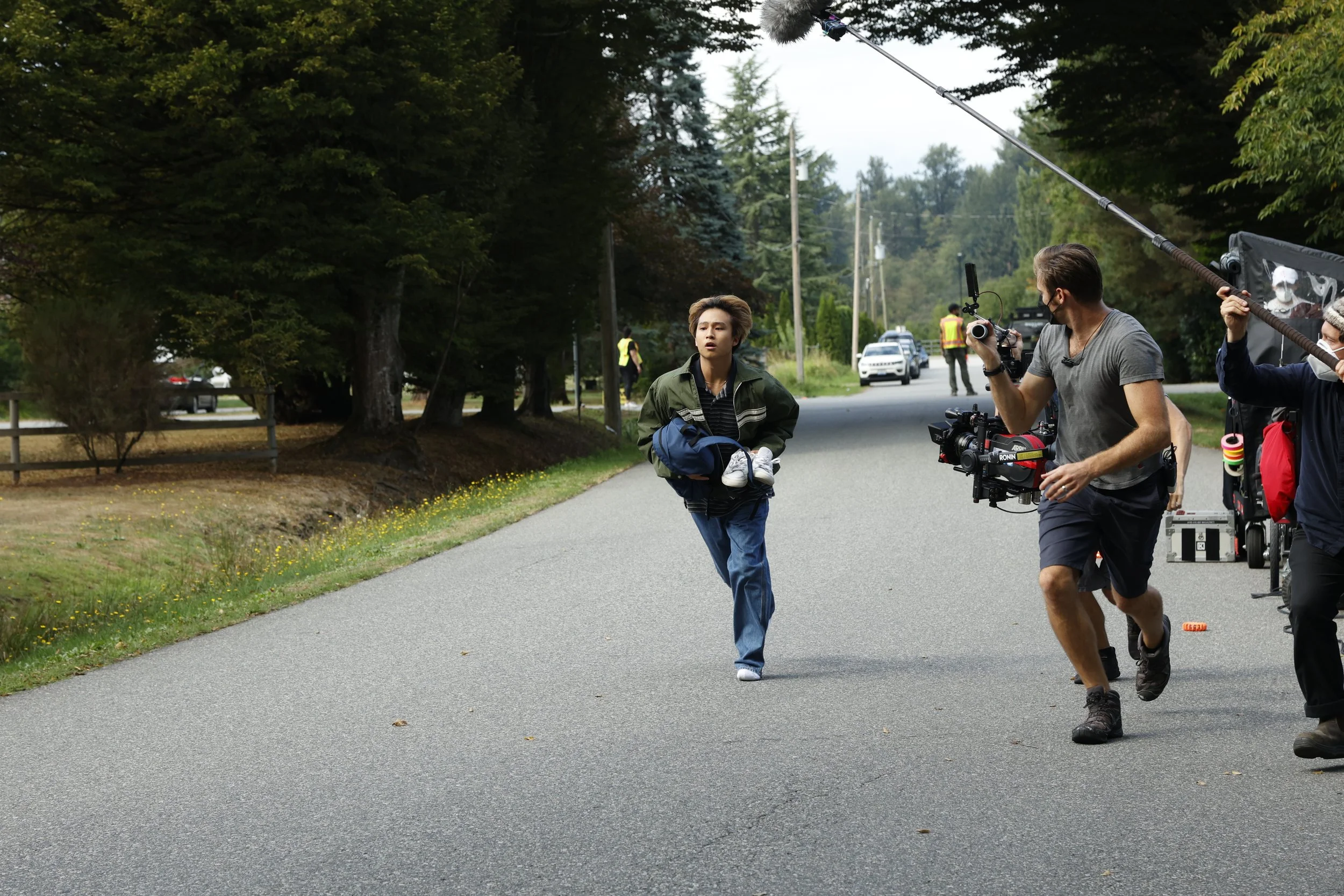Original-Cin Q&A: Riceboy Sleeps Director, Star on Capturing the Immigrant Experience
By Bonnie Laufer
Writer-director Anthony Shim is receiving more than just praise for his feature Riceboy Sleeps. He also recently took home $100,000, winning the Toronto Film Critics Association’s Rogers Best Canadian Film Award.
The beautiful and heartbreaking drama tells the story of a single mother (Choi Seung-yoon) who moves to Canada from South Korea with her son (played as a child by Dohyun Noel Hwang and as a teen by Ethan Hwang) to make a better life for him.
Our Bonnie Laufer spoke with Shim and Hwang about working on the film, which opens in limited release March 17, and about its universal appeal.
Read out review of Riceboy Sleeps
ORIGINAL-CIN: Anthony, is it safe to say winning the Rogers Best Canadian Film Award from the TFCA is one of the more important accolades of your career so far?
ANTHONY SHIM: Yes. You know, it's funny. I was just in the middle of shooting a TV show. I was exhausted. My brain was not focusing on winning awards. Then suddenly, I got a message from one of my producing partners going, ‘Congrats.’ I was like, ‘For what?’ He told me and then also my phone just blew up. It's incredible and amazing because it's the Toronto Film Critics Association. We are a Vancouver film and production group; this acknowledgement over two of Toronto's most famous directors is mind-boggling to me. I am very humbled and grateful.
O-C: It was well deserved. Ethan, your performance as teenage Dong-Hyun was just fantastic. When you first got the script, did you find him relatable? Did it frighten you to take this on?
ETHAN HWANG: I wouldn't say it was scary, but it was definitely a challenge because I realized I had to tell this personal story of Anthony's. I’m finding that so many other people are relating to it, kids my age and people like my dad. My dad was a big influence on me taking the role; he thought the script was amazing. I quickly realized that being a part of this film was a once-in-a-lifetime opportunity. It was a privilege to play this character.
O-C: Although the film focuses on a Korean family, there's really no one who can’t relate to the story about immigrant parents coming to a new country to make a better life for their kids. What struck me watching this was seeing this single mother's devotion to her work, her son, and her frustrations. Everything about it is so relatable. Anthony, how scary was it for you to pour your heart out and put this down on paper?
AS: Pretty scary, actually. The writing stage was probably the most challenging part of this whole process regarding the nerves. Being nervous about telling a story that is inspired by my life was a huge deal for me and I was most insecure about it.
One of the things that I worried about early on was that it felt so personal and so Korean. It was about a Korean family and the connection to Korea and the people there and the culture, the food, the language. I thought, ‘Am I alienating audiences? Am I trying to make something that only Korean people will appreciate?’ But judging by the reaction to the film, it's been a delightful surprise.
I'm still just kind of shocked at how well it's been received in certain countries. When we went to Marrakech, Morocco, there were two screenings. And those were probably the most impassioned reactions to the film that we'd ever seen, more so than Canada, more so than Korea. We talked to a lot of Moroccan people who said our family values, our relationships are all so similar. There is a big population of people in Morocco apparently who are displaced as well from different parts of Africa and Europe and so it all made it so validating to listen to their stories. That's the kind of stuff that when I was writing, when I was making it, I could never have imagined.
Director Anthony Shim (far left) on the set of Riceboy Sleeps.
O-C: Ethan, tell me a little bit about your collaboration with Anthony not just behind the camera but on-screen as well.
EH: It was a privilege. I felt like it was just so life-changing for me. Especially as an actor, I had never really worked on something so intimate and close to me. I felt like we were both on the same page with how important this was to us. Most of the time when I work with directors it's very distant. Most of them have to go along with the scripts but with Anthony there was no issue with that. I just felt with Anthony there was more of a motion, room to create. It was a great learning experience but also great fun. I really hope I can get to work with him again.
AS: Just have your people call my people (laughs)!
A scene with Ethan Hwang.
O:C: Your character goes through so much. He's a teenager experiencing that teenage angst in addition to having an immigrant mom who is also experiencing so much trauma. I would think that at the end of the day you brought a little bit of yourself into this performance.
EH: For a lot of the scenes I thought, ‘Oh my god, the arguments I have with my own mom and with my family were very relatable and very universal.’ When we were doing the run-through of the argument scenes, Anthony’s sister would walk away, because she would get reminded of when that happened. It's a close and intimate movie that I feel can really bring people together. Plus, it was such a pleasure working with Choi Seung-yoon who played my mom. She is so talented, and I can’t believe this was her first role.
I feel like what really helped the chemistry between us was the fact that we had so much weight on our shoulders during the shoot and all this pressure to make it work. I don't think we realized at the time it was also a sense of passion and so relatable to me. I just feel like that really helped.
O:C Anthony, I didn't know that I was going to need a couple boxes of Kleenex watching this film. The scenes in Korea, particularly at the end of the film, are beautiful. What was that like for you to shoot there?
AS: That town is where my grandfather is from. It’s still inhabited, but all the people who live there are distant relatives of mine. That mountain actually belongs to my uncle, and it's been passed down generation after generation and so I've been hearing stories about that town my whole life. I've gone and visited there, and I have fond memories of that part of the country and the grave that we shot at that is my great-grandfather’s grave. So, there's an actual personal connection to that part of the world and that space.
As a result, I knew what the space was going to be like, I knew the energy that the space brought, and I knew how I wanted to end it. The actors and everyone who worked on those days, they all knew what it meant to me. They all had an appreciation and respect for what we were doing and where we were doing it.
For those final few scenes, the sequence of getting up to that mountain was done in one take because we were trying to get there for sunset. We were at the mercy of the sun setting, and we didn't have any time to waste. The actors knew what they were doing. They were prepared and by that point, we'd been working on this thing for months. So, there was no direction needed. It was both Yoon and Ethan doing their thing.
I told them, ‘You can't do anything wrong because whatever you do is what the characters would do.’ They both knew where this was headed. I just wanted it to happen once and let the actors experience it as though it was a real thing because it happened in real time. It wasn't rehearsed. I didn't know what we were going to do but they delivered. I was two feet from Ethan just watching with tears rolling down my face. I refused to do another take because it played out exactly as I envisioned it would. I couldn't have been more delighted.





